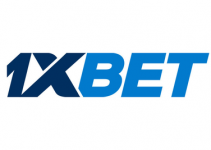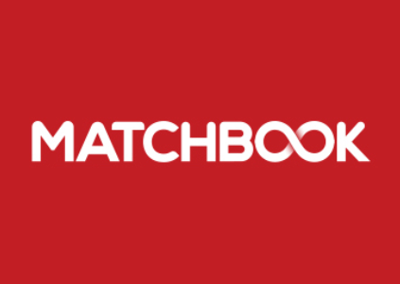 The betting exchange site Matchbook has had its licence suspended by the United Kingdom Gambling Commission, a statement posted on the company’s website has revealed. The decision came into effect at 23.59 on the seventeenth of February, meaning that the company was closed in terms of all betting and casino activity through its website.
The betting exchange site Matchbook has had its licence suspended by the United Kingdom Gambling Commission, a statement posted on the company’s website has revealed. The decision came into effect at 23.59 on the seventeenth of February, meaning that the company was closed in terms of all betting and casino activity through its website.
The exact reason for the closure is unknown, though there is some speculation that it could be to do with a legal judgement that involved a Matchbook subsidiary called Eurasia Sports that was made in January. Though the company is unable to take new bets, all currently active ones will still be settled and customers will be able to access accounts to withdraw funds.
What Has Happened
Customers heading to the Matchbook site were greeted by a post from the company informing them that the UKGC has ‘temporarily suspended’ the operating licence of Triplebet Limited, which is Matchbook’s parent company. Open positions will continue to be settled, but no new bets in either the betting or casino section of the site will be taken.
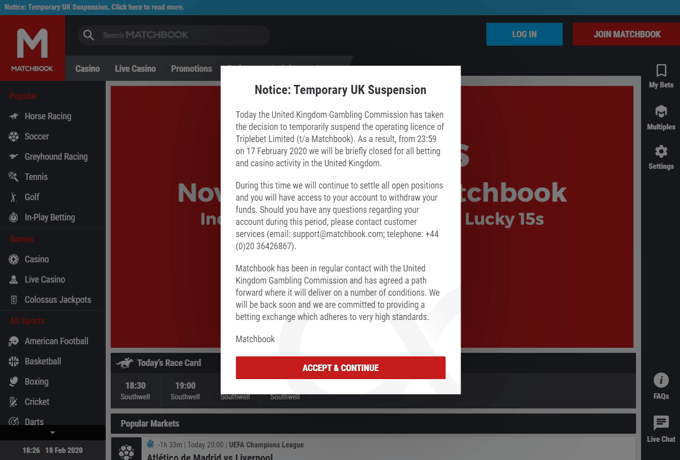
The company also offers customers the ability to login to their accounts in order to withdraw any funds. Within the message there are contact details for customers who wish to speak to a member of the customer service team in order to understand what’s going on. It’s clear that the Gambling Commission has made specific requests of Matchbook in order for it to reopen.
The statement reveals that Matchbook has been in ‘regular contact’ with the UKGC, agreeing a ‘path forward’ in order to be able to ‘deliver on a number of conditions’, although what those conditions are haven’t been revealed. The company doesn’t seem to fear any long-term issues, stating that they’ll be ‘back soon’ to provide a ‘betting exchange which adheres to very high standards’.
Why Has It Happened?
The biggest question mark surrounding the entire episode at this stage is why, exactly, the Gambling Commission has chosen to take the step of suspending Triplebet Limited’s licence. What makes things slightly more confusing is the fact that, at the time of writing, the company’s website is still listed as being Active on the Gambling Commission’s own website.
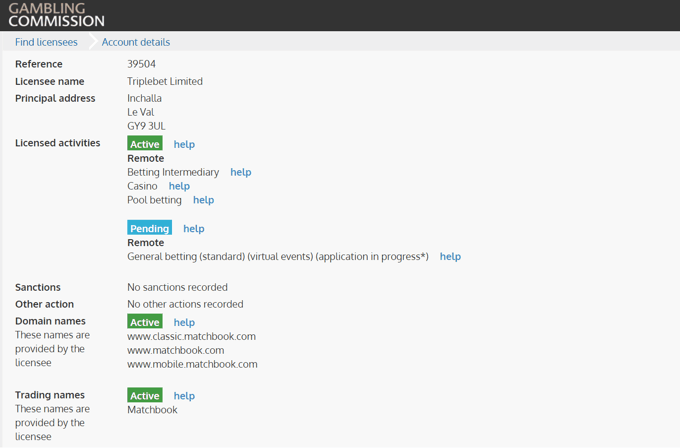
The only thing that is being linked to the suspension is a legal judgement that involved a Matchbook subsidiary called Eurasia Sports. They held an Alderney Gambling Control Commission licence for the site 3et.com that promised high-value customers the ability to engage in ‘unrestricted betting’.
Eurasia Sports
In the case that involved Eurasia Sports, the defendants were numerous high-rolling clients who had been recruited to bet with Eurasia by an Irish firm called Xanadu Consultancy. They helped to attract the high-rollers, who were mostly form Peru, by promising them the ability to bet large amounts of money quickly, which isn’t usually common.
Xanadu Consultancy were not part of the deception of Eurasia Sports, but rather just put the gambling firm in touch with the high-rollers. The high-rollers were targeted with the promise of being able to place huge bets that wouldn’t normally be accommodated by the Matchbook website. It offered a ‘brokerage product’, according to the judge in the case.
All of that is not, in and of itself, a major issue or something that the Gambling Commission would normally be concerned with. The tale began in September of 2014 when Paul McGuinness from Xanadu and Andrew Pantling of Triplebet visited Juan Omar Machi Aguad in the Atlantic City Casino in Lima. The casino was owned by Aguad at the time.
Giving High-Rollers Credit
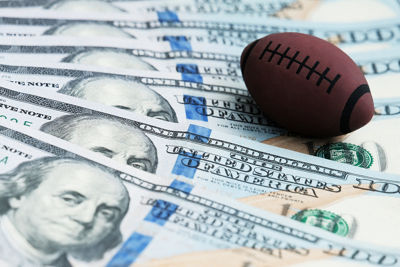 He wanted to place bets amounting to half a million dollars on American football matches, with Eurasia Sports extending $1 million in credit to him without any security in order to allow him to do so. Due diligence paperwork was completed and the credit was extended, which Aguad had lost by the following day, He was another half a million dollars credit, which was also lost.
He wanted to place bets amounting to half a million dollars on American football matches, with Eurasia Sports extending $1 million in credit to him without any security in order to allow him to do so. Due diligence paperwork was completed and the credit was extended, which Aguad had lost by the following day, He was another half a million dollars credit, which was also lost.
Aguad then offered to transfer $500,000 to Eurasia Sports via a business colleague of his, as long as that colleague could also have an account set up. That did indeed happen, but Aguad bet via that account and lost another half a million dollars. He promised to transfer $375,000 as part settlement, requesting credit to the same amount that he was then granted.
In what must have been at least mildly suspected by Eurasia Sports, Aguad then bet that money and promptly lost it. Later in the year Eurasia Sports appointed Jose Roberto de Romana Letts as an agent to introduce South American bettors in Peru to the company. He offered to provide security for new customers in the form a $10 million cheque.
Further clients were then allowed to open accounts because of the security offered by that cheque, with those people also receiving credit from Eurasia Sports. The cheque was not honoured when it was cashed, leading to the court case as Eurasia Sports attempted to reclaim the money owed by the numerous defendants. Eurasia Sports won the judgement.
Why That Might Be Relevant Here
Though the link between Eurasia Sports and the high-rollers is only speculative at this moment, it would make sense if that was the reason behind the Gambling Commission’s decision to suspend Matchbook’s gambling licence. The UKGC is notoriously intolerant of companies that do not have sound financial practices in place.
The industry regulator has recently confirmed plans to stop companies from accepting deposits made with credit cards for the purpose of gambling, so is likely to take a dim view of Eurasia Sports’ decision to offer unsecured credit of up to $1 million. This has also come about during a time when VIP schemes are being closely looked at by the UKGC.



